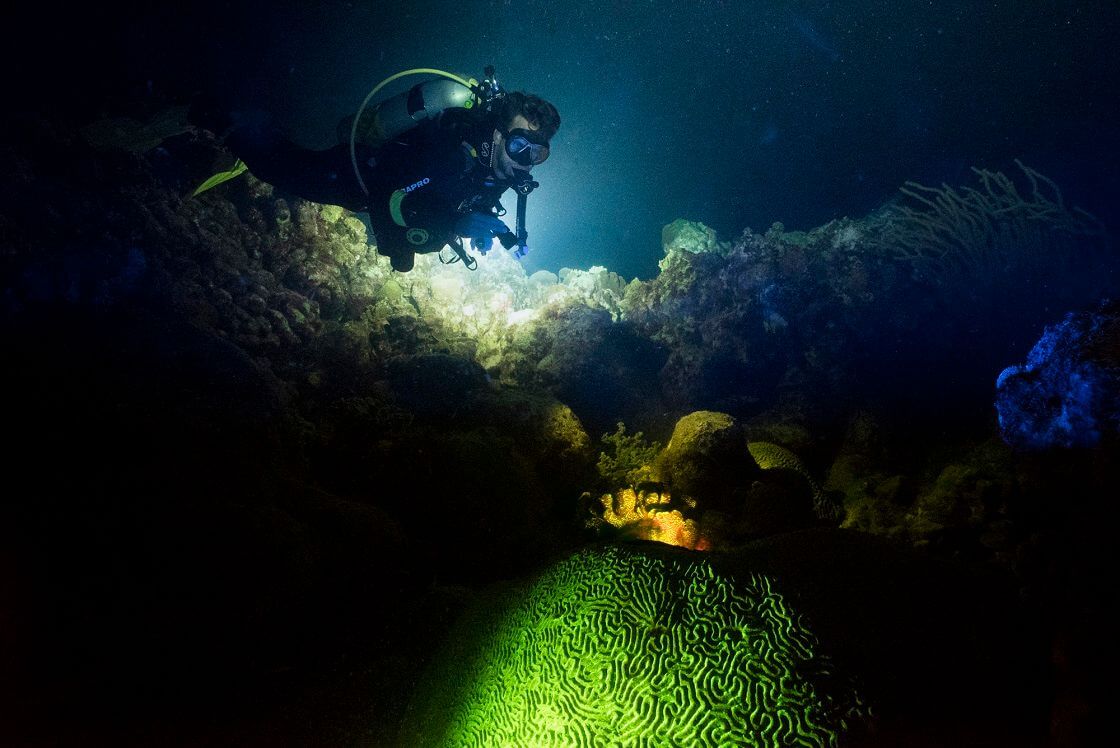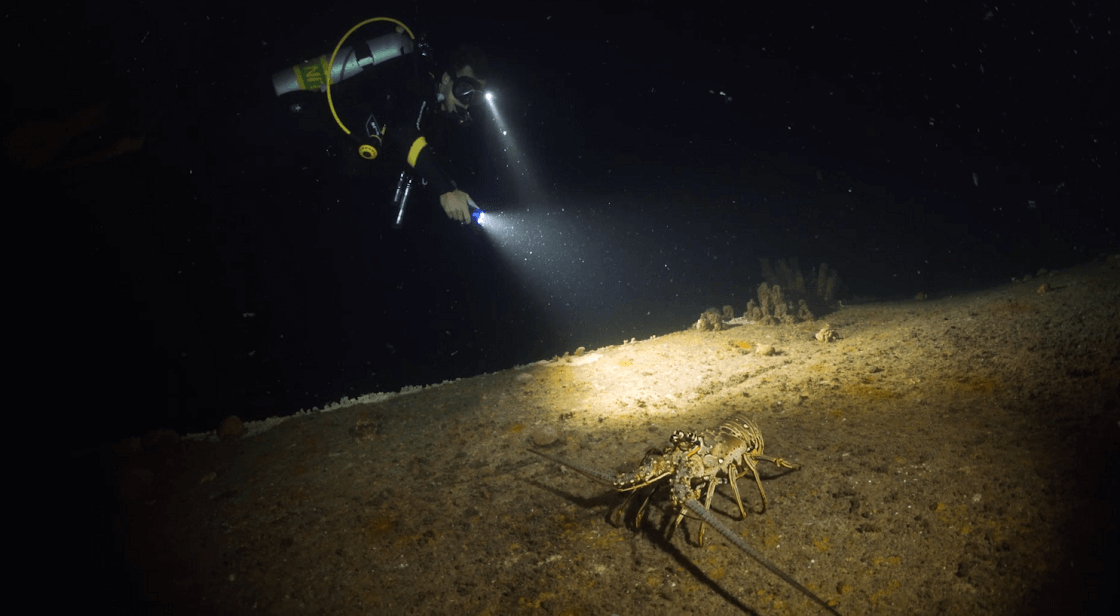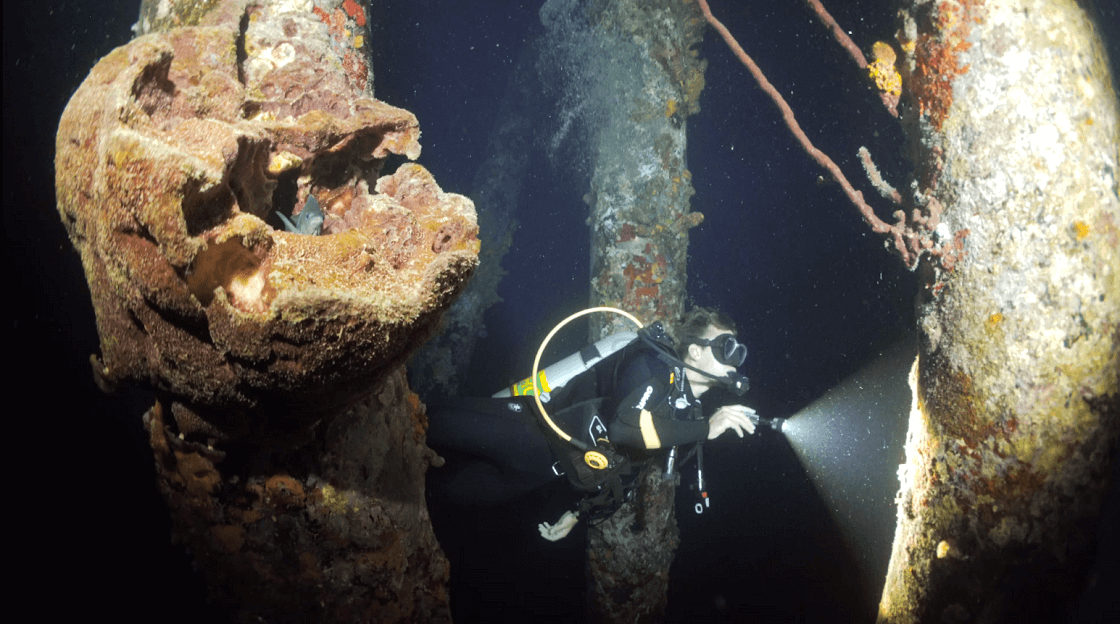Tips to Improve Your Night Diving
If you've never been night diving before, it is completely different from diving during the day. From the way you dive, to assessing risk, to the types of equipment you prioritize, night diving is an entirely different adventure. The truth is, night diving is a unique approach to diving that lets you see the behavior of underwater life forms that don't come out during the day. It is a unique and exhilarating venture unlike any other. Read more to learn how to improve your night diving experience.
What Makes Night Diving Unique
Night diving offers a vast array of dive opportunities that are normally not possible during daylight. While you can usually look around during a normal dive and see around you in every direction, a night dive means everything around you is focused on where your dive light is pointing. In the same way, daytime diving shows you an entire shelf of coral. Night diving challenges you to see a small part and observe everything about it.
Night diving invites you to see a whole new world underwater. While some underwater creatures retreat to bed for the evening, others begin their day when the sun goes down.

Preparing for the Different Types of Night Diving
A night dive is a thrilling, rewarding experience. The darkness, the mood, the quiet – they all add (and heighten) the experience. As a result, without thorough preparation, you might not experience all that night diving has to offer. Whether you are new to night diving, looking to refresh, or are an avid diver, we have prepared some great tips for every diver:
First, dive during the day. If you know where the night dive is, we recommend that you dive that same site during the day, prior to the night dive. This will help you orient yourself at night, and better map out how you want to explore it. This will also provide you some perspective on how each site changes from day to night.
Dive at dusk. If you can't make it during the day, diving at dusk, or twilight, leaves a little bit of light in the sky before it completely fades into night. Letting your eyes get used to the darkness is a good way to prepare for night diving.
Pack a primary light and a spare. The only significant light you will find on your night dive is that which you create. That is why it is imperative to have a reliable light, and a second as back up in the event of a loss of your primary light. When picking a primary light there are many factors to consider: strength, beam, battery type being some of the most important.
Pack a tank signal light. It is best practice to carry out a night dive with tank light. This way you are marking yourself as a diver, and your buddy, or dive professional, can easily locate you.
Pack a compass. It is always recommended to dive with a compass. It is particularly important while partaking in a night dive so you can orient yourself in the darkness, and to assist in locating your entry and exit points.
Pack a strobe. Strobes can come in handy to mark your entry/exit points or ascent/descent lines. It is always a good idea to have one on hand, however most dive operations will have one in the water for added safety.
Pack a buddy. Well, don't literally pack him or her up. Of course, you need your dive buddy for this night time excursion. Not just for protocol, but also for safety as you spread out over the dive site. Make sure you and your buddy review hand and light signals before going on the dive.

These general preparation tips apply to most night dives. But there are numerous types of night diving out there. Here are a few you might want to try out, with a few additional tips for each kind of night scuba diving.
Night Diving with Manta Rays
Seeing a manta ray is incredible, diving next to them is humbling, diving with them at night, is an out-of-this word encounter that few get to experience. The encounters during night and day are, to put it simply, as different as night and day. The dives are usually planned at known manta ray feeding spots, so join a group or find a guide who can help you locate these areas. Don't be turned off by large groups of divers--more divers means more manta rays that will be attracted.
The most important piece of gear to check is your dive light. Make sure it is fully charged and ready to dive. The dive light, held near your face pointing upwards, is what attracts the plankton the manta rays eat. Manta ray dive guides often ask you to stay still on the sea floor until the end of the experience, which can be up to an hour long. With that much exposure time in the water you want to make sure you have an adequate suit for thermal protection. We'd suggest SCUBAPRO's line of Everflex suit, which comes in varying thickness, designs, and sizes. The Everflex suits are designed with an inner lining of water-draining material that enhances cold-water protection.
Hawaii is one of the top locations to dive with manta rays. SCUBAPRO has many Dealers throughout the islands to assist you with all of your diving needs. Plan your next night diving experience now by finding an authorized dealer on scubapro.com.
Wreck Diving at Night
Diving wrecks is a unique experience. It is intriguing to be diving in something below the surface, which once resided above it. Part of the draw comes from seeing the man-made structures merging with the natural. Life flocks to submerged structure almost instantly. You may have already gone on a few wreckage dives during the day, but how about at night?

Diving wrecks at night adds to the thrill. On the dive itself, it is best to have a general understanding of the layout of the wreck. This way you can properly navigate the wreck, and better comprehend what you are seeing in your light. Different animals will make themselves visible from all the nooks and crannies on the ship (which typically stay tucked away during the day). We recommend diving wrecks with a sturdy pair of gloves for added protection against all elements. Try our Everflex 3mm glove, paired with your Everflex wetsuit for maximum exposure protection.
Fluo Diving
Fluo diving is short for fluorescent night scuba diving. Using special lights and masks, the underwater world is revealed in a stunning, almost unbelievable way. It almost appears as if you are diving in space, amongst the stars.
For this, you can bring special fluo diving lights that are either blue lights or ultraviolet (UV) lights. These are absorbed and thrown back as vivid fluorescent colors, which some scientists believe actually protect them from UV rays.
If you are more familiar with adjusting your own filters, especially for photography, you may place blue filters over your dive lights or camera strobes. SeaLife makes Fluoro strobes that are the perfect addition to your camera for your night diving.
Recommended Gear for Night Diving
We've talked a little about what gear you might need for specific night dives, so let's talk a little more about what generalized gear is required for a night dive, and tips on how to choose what is best for you and your night diving experience.
Diving Lights
Your night diving experience wouldn't be complete without your lights. Not just for the full experience of underwater creatures at night, but for safety during your dive. First, pick a diving light based on your preferences. Do you prefer a wide beam, or spot beam? Or both? What batteries does it take? How long is the life?
Your primary light should be your strongest of lights, this is determined by lumens. It is recommended to have a primary light with an extensive burn time, so it doesn't die on you during your dive. We recommend the Nova 2100 SF Dive Light as your primary choice. It has dual beam options that include a 2100 lumen 65 degree wide beam, and 800 lumen 15 degree spot beam, with five primary light modes, and an emergency signal mode as well. The light can run steady for 55 minutes at full power and constant brightness. The set includes handles, lanyards, camera adapters, rechargeable battery, and more.
In the event you, or your buddy's, primary light fails, you always want to carry a backup. Your backup light doesn't have to be as strong as your primary, however, it should be bright enough for you to conclude your dive safely, and return to your exit point. For backup lights we recommend the Nova 850R Wide Dive Light. This powerful rechargeable dive light offers a compact size, perfect for storing in your BCD, and comes set with a wide 80º beam, it is perfect for night diving.
The Nova line also consists of a smaller light, the Nova 250, which is a small but powerful dive light. It can easily be mounted to your mask, or helmet for continued illumination. Measuring only 3.9in in length, the Nova 250 is an extremely useful dive light that can be stored in the smallest BCD pocket. It offers three power modes: 100%, 50% and Flash, plus is equipped with an over-pressure valve to release battery off-gassing, making it the safest small light on the market.
Tank Signal Lights
Tank lights are another piece of safety gear you should have with you on a night dive. They are primarily to signal to other divers in the water of your location. It is much easier to keep up with your buddy or dive guide if each diver is marked with a light.
You may pick a small bulb or LED light, and choose a steady glow or a continuous strobe. SCUBAPRO's Flashy LED Light is a nifty mini LED flashing light, that makes for a very effective marker light for virtually any night diving scenario when you need a little extra illumination. With a 12 hour burn time, and exchangeable batteries, you can use these lights over and over again. They are sold in a pack of twenty.
We do not recommend you mark yourself with chemical glow sticks. Chem lights are not environmentally friendly and have a high risk of contaminating the environment if they leak. Furthermore they can only be used once, making them a large source of trash and marine debris.
Diving Compass
To maintain your orientation throughout your dive it is standard to carry a compass with you. Whether it be a clipped on to your BCD, strapped to your wrist, or integrated into your dive computer. The best diving compasses for night diving either light up, absorb light for readability, or easily catch particles of light so you can see their faces. Where as many SCUBAPRO computers come equipped with a digital compass, we also recommend carrying a standard compass of your preference. You can view all compasses offered by SCUBAPRO on scubapro.com.
Education
Most diving agencies offer specialty courses on night diving. We recommend that prior to any dive adventure you complete the necessary training so that you will be fully prepared for each dive. Learn more at your local SCUBAPRO dealer.
Tagged Scuba Training, Adventure Tips






